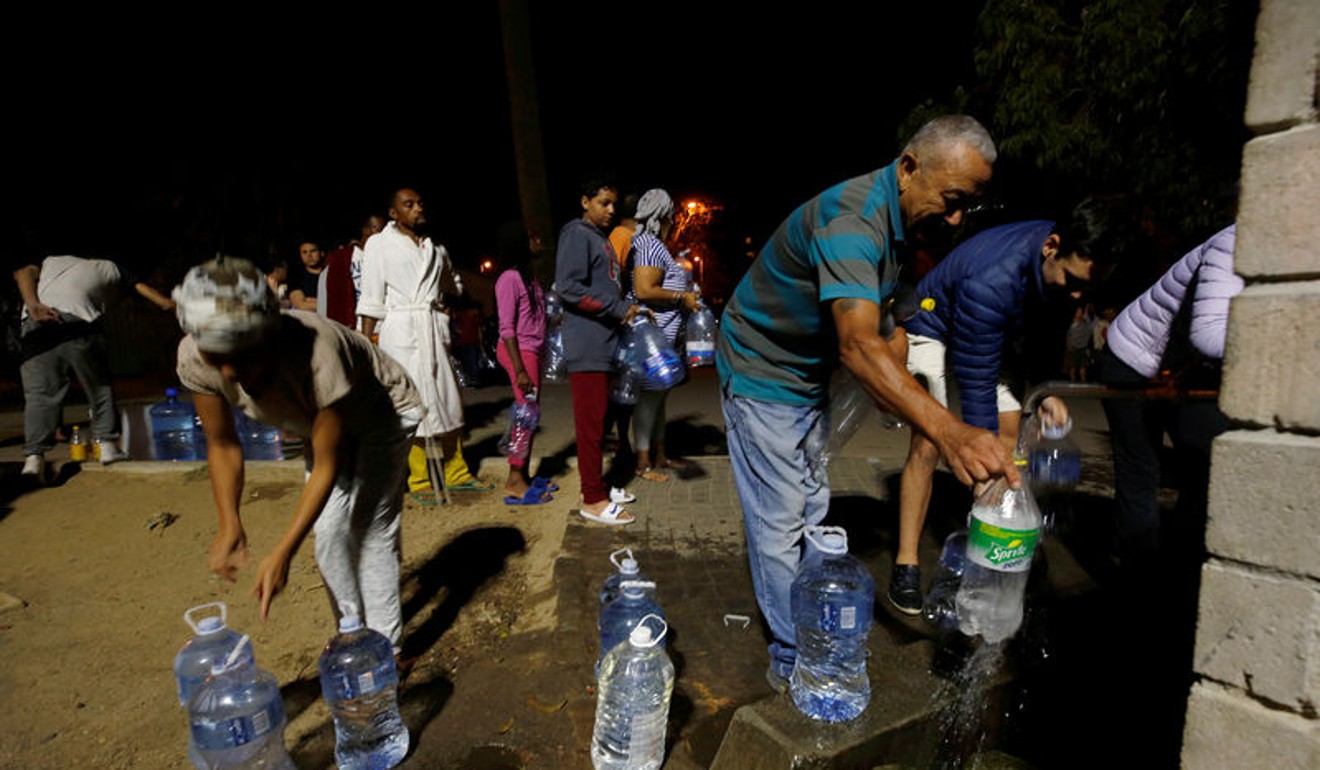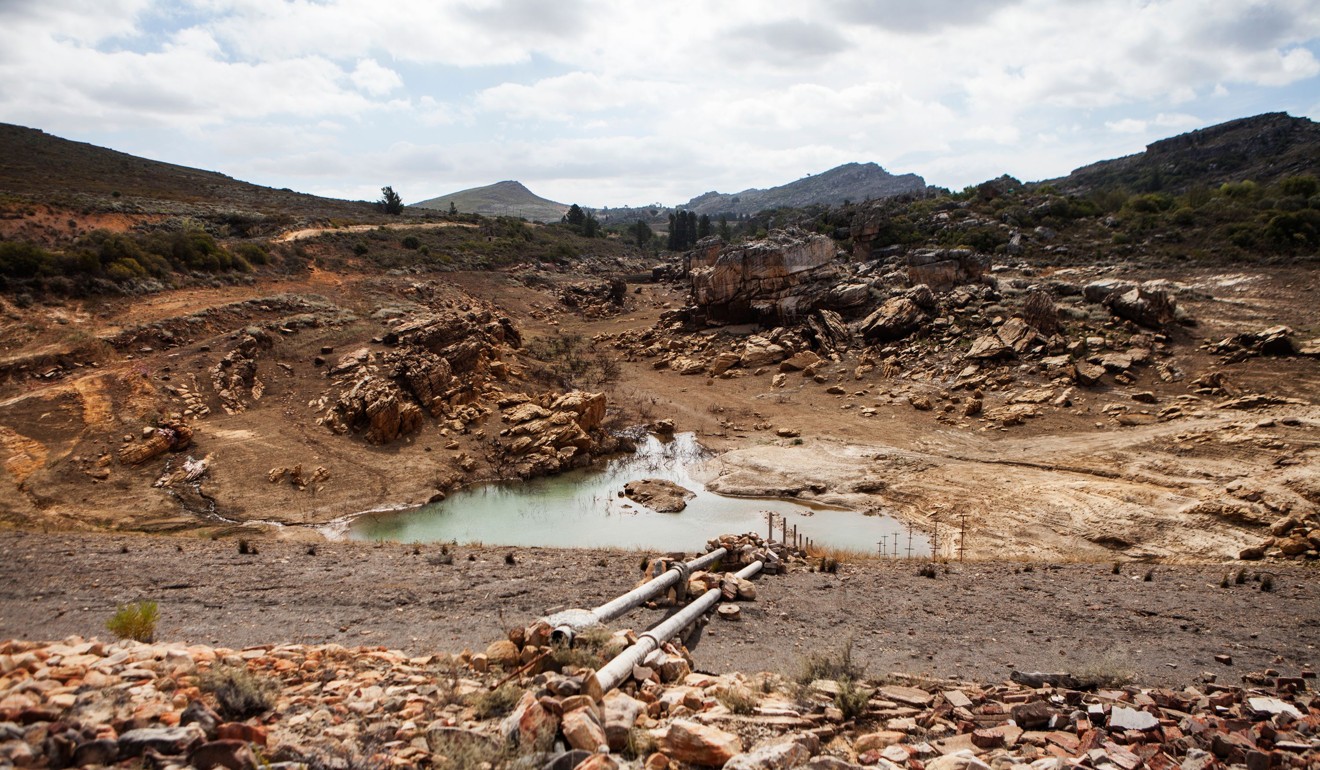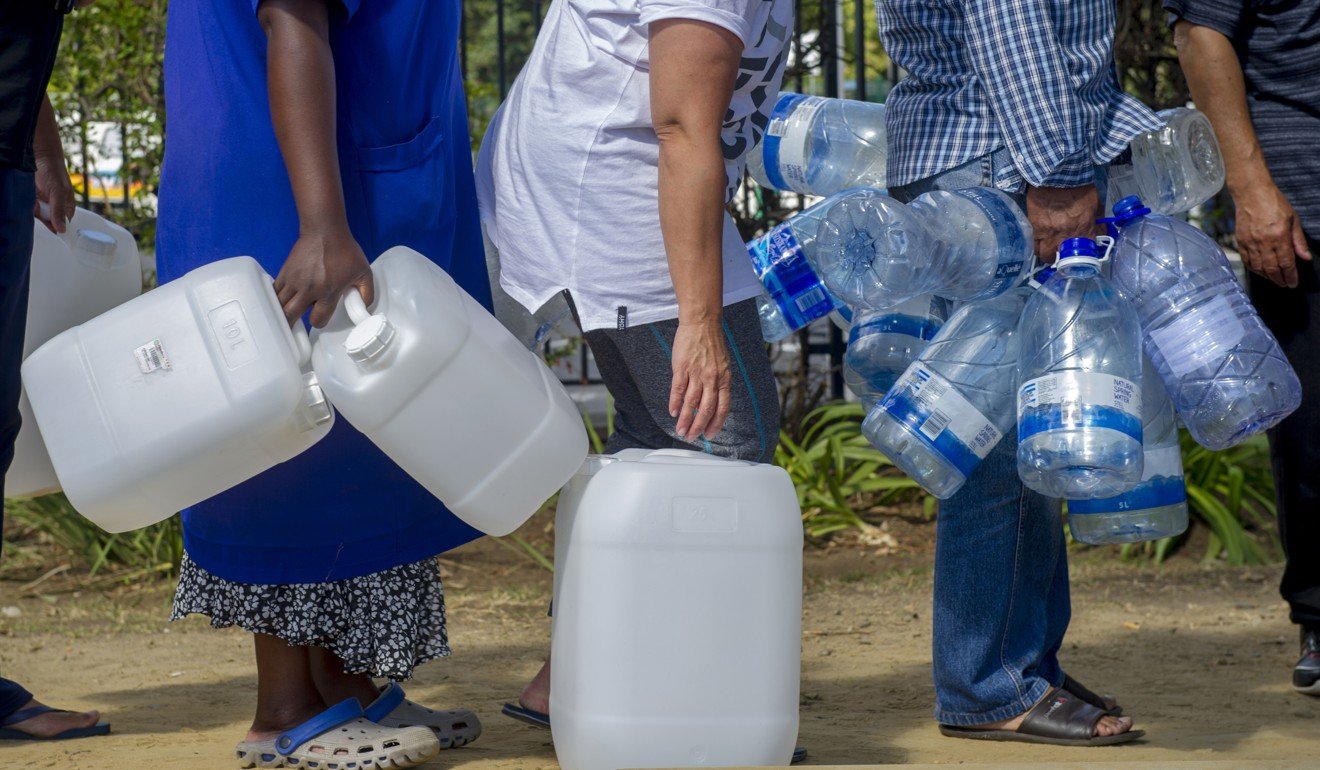
Countdown to Day Zero: Cape Town contemplates permanent water-scare life as it fights worst drought
Authorities are seeking ways to battle the shortage, including building desalination plants, extracting groundwater from aquifers and reducing water leaks due to ageing infrastructure

The day that Cape Town’s taps are expected to run dry has been moved from late April to the first week of July, but its water woes are far from over – even if Day Zero doesn’t even happen this year. Experts think Day Zero is inevitable. In truth, South Africa’s key tourist capital and other parts of the Western Cape province will stay water-scarce for the foreseeable future. Climate change is a key culprit, which means that permanent, structural changes are going to be necessary for long-term development, including for the all-important wine and tourism industry.
The local and provincial authorities are therefore trying to make the region more drought resistant. Decreasing Cape Town’s near-total dependency on the rain is key.
“A few years ago, 100 per cent of our water came from rain. By the end of this year, we want 12 per cent of our drinking water to come from alternative sources,” says Tim Harris, CEO of the Western Cape’s trade and investment promotion agency Wesgro. “This includes building desalination plants, which can give us with 16 million litres of water per day, and extracting groundwater from aquifers. This could result in another 120 million litres daily.”

A few years ago, 100 per cent of our water came from rain. By the end of this year, we want 12 per cent of our drinking water to come from alternative sources
In the meantime, the municipality says it has intensified the fight against water leaks, a chronic problem in South Africa due to ageing infrastructure. Cape Town has 11,000 kilometres of water pipes, with 16 per cent of its water lost due to leaks, compared to 34 per cent losses nationally.
The threat of Day Zero has prompted a rigorous water-saving drive among locals, which, according to Mayor Patricia de Lille, has helped considerably.
“Cape Town’s water usage has dropped from 900 million litres per day a year ago to 500 million litres per day in March 2018,” she said in a statement, adding that the city’s per day usage should be around 450 million litres per day to prevent Day Zero. However, even that may not be enough.
Increasing the price of water among heavy users whilst decreasing overall water pressure have been two other tactics. “The city has installed a quarter of a million water management devices,” Harris says. “If your household is using over 10,500 litres per month, these devices restrict you to a more reasonable amount.”

Philip Kiracofe, co-founder and CEO of tech incubator StartUpBootcamp Cape Town, warns about the systemic dangers beyond Day Zero. “The reality is that we can’t take our foot off the pedal – ever,” he says. He points to rapid population growth and intense urbanisation leading to water shortages across Africa, and not just in Cape Town. Water saving won’t be enough to deal with this future – technology solutions in water and agriculture are urgently needed.
Alan Winde, the Western Cape provincial minister of economic opportunities whose remit combines agriculture and tourism, has said that agriculture needs to get “smarter”. Agricultural production has declined by 20 per cent due to the drought, with job losses as a result – an estimated 22 per cent of rural jobs are supported by agriculture. “A whole new water economy will come out of this,” Winde said during a media briefing in March. He added that it will take a lot of innovation to keep South African agriculture in business.
A whole new water economy will come out of this
There have been also concerns regarding the tourism sector, which contributes about 7.5 per cent of Cape Town’s gross domestic product. Recent figures by Cape Town Tourism showed that the Mother City received one million foreign travellers between July 2016 and July 2017, a 25 per cent year-on-year increase, along with four million domestic tourists. Keeping tourists coming has become a critical PR job.
“Yes, we are open to tourism. However, if you do come, please be mindful of our situation,” says Harris.

Meanwhile, Kiracofe is confident about the promise of new, home-grown technological solutions to deal with permanent drought conditions. He says that water consumption in Cape Town is already down to 50 litres per person per day (Hong Kong uses over 200 litres per day per person). “All key innovations that will help us solve our water crisis will come from here. If, and when, we come up with these solutions, we will export those solutions to other places in the world that will follow with their water crises.”
At the moment, Cape Town’s drought is the news, but other cities are in danger, including Sao Paulo, a city of 20 million in Brazil, which was down to 20 days’ water supply in 2015. Mexico City and Jakarta are also at risk. Cape Town’s response to its drought after Day Zero could be a harbinger for other cities in future.
(This article is published in the April issue of The Peak magazine, available at selected bookstores)